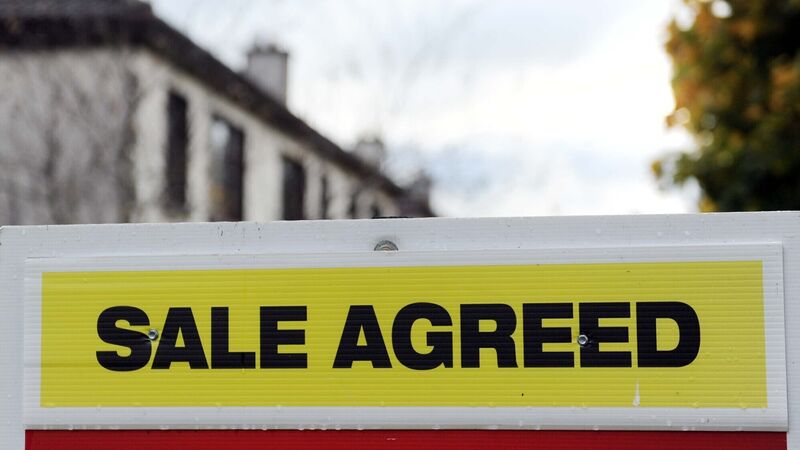Cork estate agent: How to make an offer on a property

Think about making an offer in the way prepare for an important meeting, advises Majella. Picture Denis Minihane.
You’ve scoured the market, balanced your wish list with your budget, and finally, you spot the one that feels just right. Suddenly, the butterflies kick in. You’re asking yourself: how do I make an offer that actually gets accepted?
Contrary to popular belief, it’s not always about throwing down the highest price. Sellers often care just as much about the buyer’s readiness and position. They want confidence that the sale will go smoothly, without any unexpected hiccups.
So, how do you make a strong, appealing offer — especially in a competitive market?
Here’s a straightforward guide to help you navigate the process.
Think about making an offer in the way prepare for an important meeting. You wouldn’t want to show up empty-handed or unprepared. The same goes for buying a house.
First off, get your mortgage approval in principle sorted early. This is your financial green light — proof that you can afford the property you want. Without it, your offer is just hopeful talk.
Next, have a solicitor lined up. Knowing who will handle your legal paperwork signals you’re organised and serious. Also, set a realistic budget, including additional costs like stamp duty, surveys, and solicitor fees.
And be honest with yourself about your buying position. Are you a first-time buyer? Selling another property first? A cash buyer? These details might just give you the edge. Sellers like buyers who are ready to move quickly and with minimal fuss.
In Ireland, it’s common to make the initial offer verbally — usually by phone or at the viewing itself. It’s a quick way to express your interest and can start informal negotiations.
Estate agents will ask you to put your offer in writing soon after. This isn’t just bureaucratic red tape. A written offer creates a clear, traceable record. It protects you and the seller and helps keep everything transparent, in line with the Property Services Regulatory Authority (PSRA) guidelines.
Think of your written offer as your first impression on paper. It tells the seller you’re serious, organised, and ready to proceed.
A strong offer isn’t just about numbers — it’s about clarity and confidence. When you put pen to paper (or fingers to keyboard), make sure you include:
- The property address
- The amount you’re offering
- Your full name and contact details.
- Evidence of your finances, like your mortgage approval in principle or proof of funds if you’re paying cash.
- Any conditions attached to your offer — for example, subject to survey or the sale of another property.
- Your solicitor’s details (if you have them).
A tidy, well-structured offer can set you apart from other buyers who might submit vague or incomplete proposals.
Once your offer is submitted in writing, the estate agent will present it to the seller.
Then the waiting begins.
The seller can:
- Accept your offer.
- Decline it.
- Come back with a counter-offer.
It’s worth knowing that in busy markets, sellers rarely look at price alone. They’ll consider who seems the most reliable, who can move fastest, and who’s got the fewest conditions attached.
That’s why being prepared with your paperwork and showing flexibility can be just as important as the figure you offer.
Here’s a key piece of information that often surprises buyers: an accepted offer isn’t legally binding in Ireland until contracts are signed by both parties, and a deposit is paid.
Until then, either you or the seller can change your mind — it’s part of the process. It can feel a little unsettling, but it’s completely normal.
Your estate agent and solicitor will guide you through this period to make sure everything stays on track.
You don’t always need to offer the highest price to win the deal. Sometimes, the smallest details can make a big difference:
- Be mortgage-ready. Sellers want buyers who can move quickly without finance delays.
- Be flexible. If the seller needs extra time to vacate, accommodating their timeline can give you an advantage.
- Keep conditions to a minimum. The fewer hoops a seller has to jump through, the more appealing your offer looks.
- Respond promptly. Quick replies to calls and emails show you’re serious and engaged.
- Remember, sellers want a smooth, hassle-free sale. Your job is to be the buyer they trust to deliver that.
After you’ve submitted your offer, it’s natural to feel anxious.
Stay in regular contact with your estate agent. Keep your mortgage approval valid and be ready to act fast if the seller comes back with questions or a counter-offer.
A friendly, clear line of communication can keep you top of mind and avoid unnecessary delays.
Making an offer on a property might seem daunting at first, but with the right preparation, it’s manageable.
Start by getting your finances and solicitor ready. When you find the home you love, don’t just think about the number you’re willing to pay; think about how you can show the seller you’re the buyer most likely to complete the sale.
Present a clear, well-structured written offer, stay flexible, and keep communication flowing.
Before you know it, you might be the one hearing those magical words: “Your offer has been accepted.”







 App?
App?


